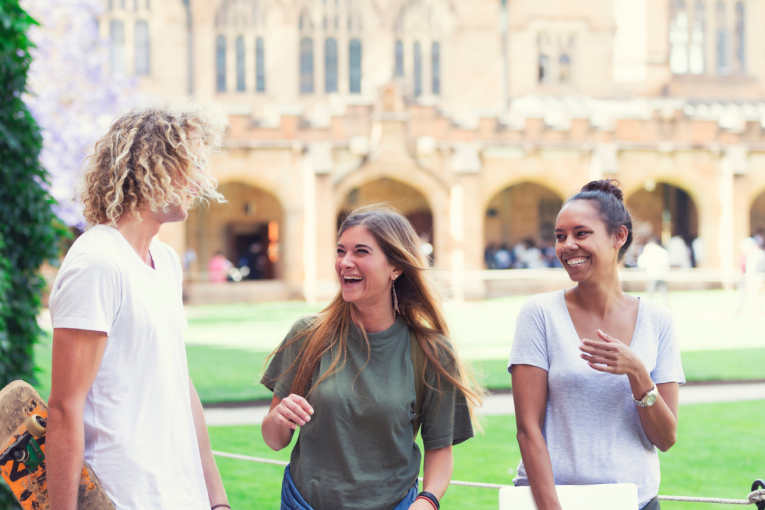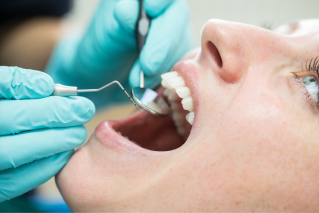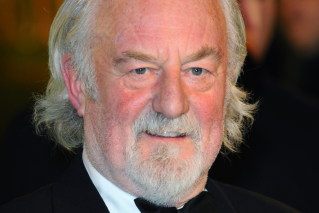Most lethal form of leukaemia: Early warning system prolongs remission

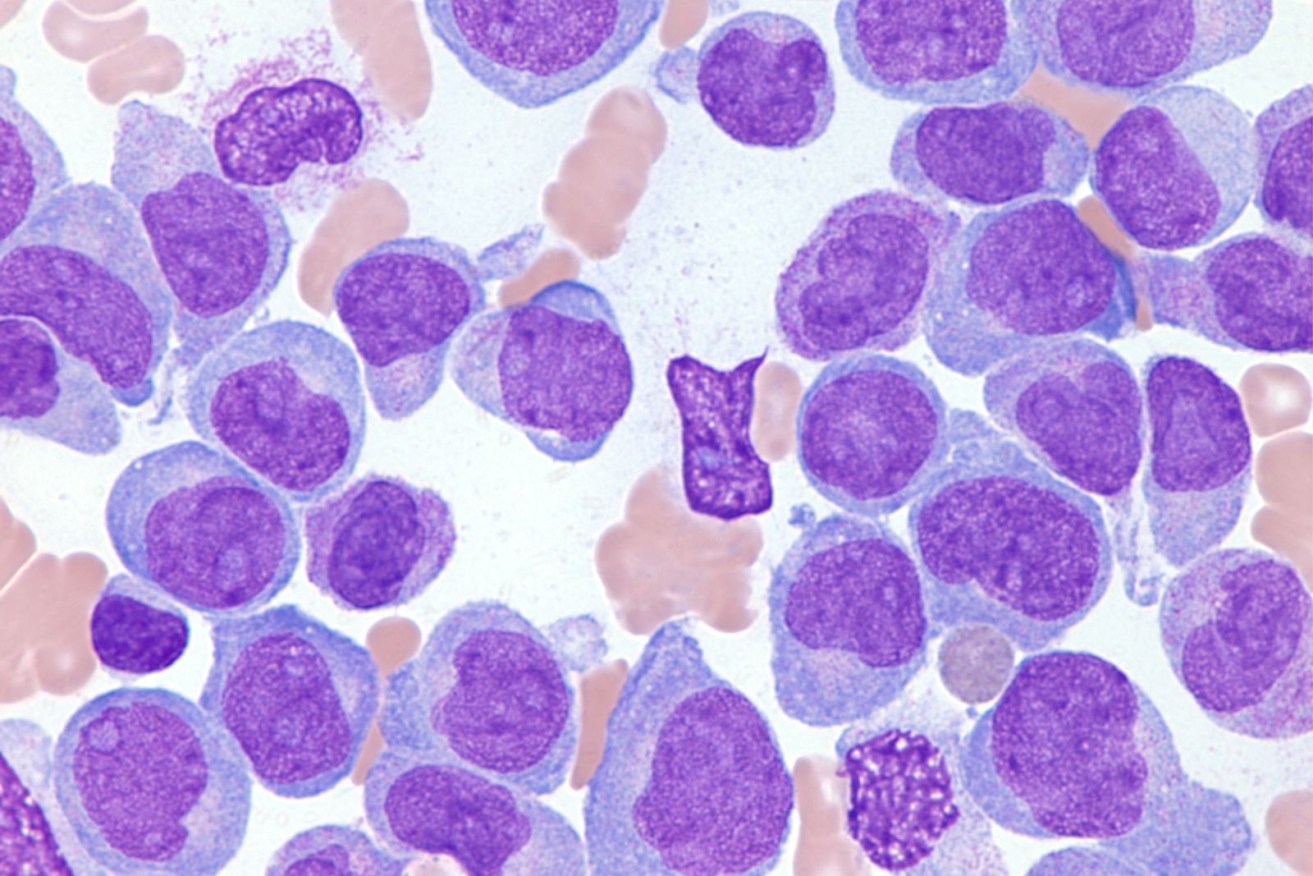
Bone marrow of a child with acute myeloid leukemia. Image: St Jude Chidren's Research Hospital
Australian researchers have found a new way to treat a deadly form of leukaemia ‘‘that stops the disease in its tracks’’.
The treatment isn’t a cure. It uses an early warming system to identify and prevent a relapse of Acute Myeloid Leukaemia (AML).
When successful – as demonstrated in a clinical trial from the Peter MacCallum Cancer Centre – this prolongs remission.
According to a statement from Peter Mac, “despite the best treatment, many patients with AML have recurrent disease within the first two years”.
Ordinarily, the median survival after first relapse is only six to eight months.
In the clinical trial, 50 to 70 per cent of AML patients are still alive after two years.
The trial shows involves a new combination of a molecular technology called Measurable Residual Disease (MRD), medication and low-dose chemotherapy.
What is AML?
According to an explainer from Yale Medicine:
In AML, the bone marrow produces large numbers of abnormal myoblasts, a type of white blood cell that does not mature, leading to a shortage of infection-fighting white blood cells.
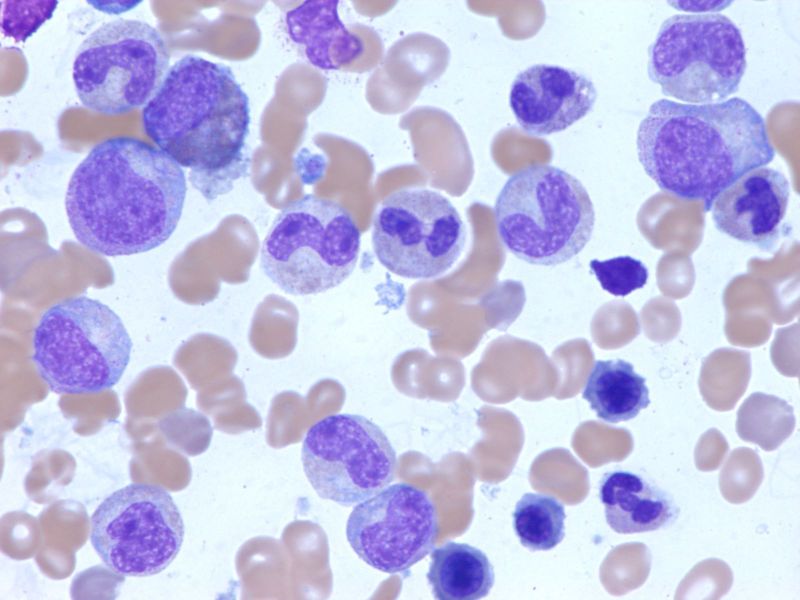
How normal, healthy bone marrow appears through a microscope. Image: St Jude
Because of this, people with AML are more prone to infections.
These leukaemia cells enter the bloodstream and can spread to other parts of the body.
As the number of abnormal myoblasts increases, they accumulate in the bone marrow and crowd out healthy blood cells.
Eventually, the bone marrow can no longer produce enough healthy red blood cells and platelets to meet the body’s needs.
The disease is rare and mostly affects people aged over 60. But it can present in children and teens.
The five-year survival rate for adults is generally said to be less than 30 per cent.
For children and adolescents, the five-year survival rate is 66 per cent.
The new treatment
As mentioned, many patients with AML will fall out of remission within the first two years.
The average patient can expect to live for six to eight months.
Key to the Peter Mac intervention is an MRD test which “provides advanced warning that the disease is returning several months before the leukaemia is visible under the microscope or the patient develops abnormal blood counts”.
Measurable residual disease is defined as the presence of residual cancer cells (a very small number) after treatment in patients with clinically undetectable disease, who would otherwise be considered in complete remission.
In the new clinical trial, “as soon as MRD was detected to rise, patients were treated with a pill called venetoclax combined with low-dose, under-the-skin injection of chemotherapy that stopped the leukaemia in its tracks in the majority of patients”.
What the researchers say
Dr Ing Soo Tiong is a haematologist and researcher at Peter Mac.
In a prepared statement he said: “Prior to this discovery, patients and clinicians face the uncertainty of disease relapse”.
He said the only treatment option then “was an even stronger dose of salvage chemotherapy”.
This required at least a month of stay in hospital associated with a very high risk of infection”.
In the new study “we measured a patient’s MRD as soon as they finished chemotherapy with the aim of the data telling us which patients were most likely to relapse”.
Professor Andrew Wei, co-lead of the AML program at Peter Mac and Royal Melbourne Hospital, said this option meant leukaemia patients could be treated as an outpatient or by a hospital in the home with results comparable to intensive chemotherapy.
“This is a paradigm-changing clinical trial that utilises molecular technologies to enable patients to receive their interventional therapy much earlier than normal and with less toxicity,” he said.
He said the response to treatment was fast and durable.
This enabled patients “to receive a subsequent stem cell transplant with much lower levels of disease burden and enhanced fitness”.
